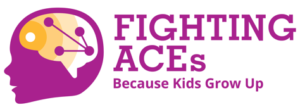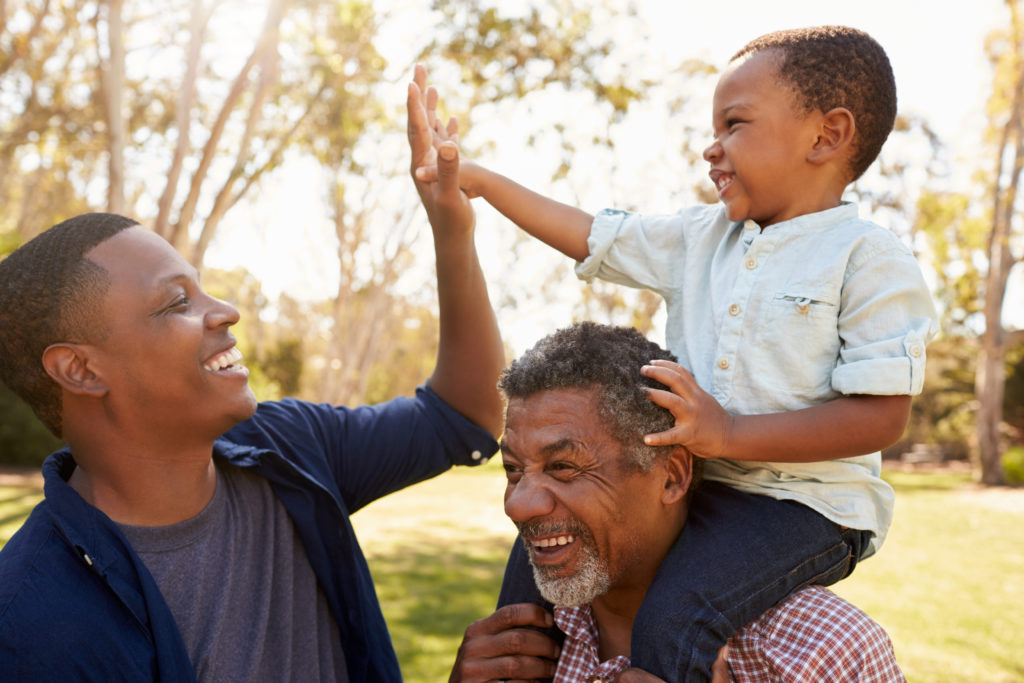
For many women, seeing a positive result on a pregnancy test is a moment of pure joy, the culmination of months (or even years) of hope, and the start of a fulfilling journey to motherhood. But pregnancy isn’t easy, physically or emotionally. It places extraordinary demands on a woman’s body and may cause stress in relationships, introduce financial hardship, and affect self-esteem. It is undoubtedly the most dramatic and permanent life change most women will ever face.
As wonderful as the prospect of bringing a new life into the world may be, it comes with its own unique set of challenges when viewed through a trauma-informed lens. The two lives of a mother and her growing infant are inextricably intertwined, and stress and trauma can have a startling impact on both. While a mother brings her own childhood experiences to her pregnancy, she may also be encountering new ones, and since the baby is exposed to all the hormones and emotions of the mother during its crucial in-utero development, pregnancy is a critical time to discuss Adverse Childhood Experiences (ACEs).
To discuss ACEs and pregnancy fully, we need to understand it from two points of view.
1.) How ACEs have affected the mother’s life, how they may still be affecting her mentally and physically, and how they might interfere with her ability to nurture and care for her child.
2.) How a mother’s ACEs affect her developing baby and what effects the infant might experience in the womb and during its first few years of life.
A Time of Change and Challenge
Some of the issues a prospective new mom might be going through include:
• identity shifts
• fear of inadequacy as a parent
• loss of independence
• delay or loss of personal goals and dreams
• relationship conflicts
• financial uncertainties
• ambivalence about bonding with her baby
• body image difficulties
• hormonal dysregulation
These issues are especially magnified if the pregnancy is unplanned or unwanted.
In addition to all these new feelings and insecurities, finding out that she is pregnant often focuses a mother-to-be's attention on the concept of parenting. This can bring past traumas to the surface, especially if she was a victim of childhood abuse or neglect. Symptoms of depression, anxiety, or post-traumatic stress may return, or surface for the first time, during pregnancy. It's a tumultuous time and one when the consequences of ACE can be clearly seen but also an opportunity to intervene and hopefully prevent the cycle of ACEs from continuing into the next generation.
For example, a recent study using data from the 2010 Nevada Behavioral Risk Factor Surveillance System showed that a history of childhood stressors, such as physical, sexual, and emotional abuse, influenced alcohol use among pregnant women. The research found a dose–response relationship between ACEs and alcohol use during pregnancy. This study contributes to a growing body of research that shows that the factors affecting alcohol use during pregnancy begin long before pregnancy...in fact, they likely begin in the pregnant mother’s own childhood.
Health Risks Associated with High ACE Scores
When adults become parents, the effects that ACEs have had on their own bodies, minds, and behaviors can influence how they experience their pregnancy as well as the physical health of their growing baby.
- When a pregnant woman is exposed to chronic stress, large amounts of neurohormones are released into her blood stream and can change the developing fetus' own stress response system.
- Maternal stress hormones can cross the placenta as early as 17 weeks into pregnancy.
- Women with high ACE scores are more likely to develop gestational diabetes and high blood pressure.
- They are more likely to deliver prematurely or have a baby that is underweight or requires NICU care.
- Even when they deliver full-term, their babies are at greater risk for developmental delays.
The good news is that during pregnancy mothers are particularly receptive to ideas on how to positively impact their baby’s life and more open to positive reinforcement about improving their own lives. Pregnancy represents the perfect point to intervene on behalf of both mother and child. Often, just finding out that she is pregnant brings a new sense of hope and determination to a woman. Pregnancy offers the opportunity for her to discuss her own childhood issues, make improvements in her life, and perhaps really confront past traumas for the first time. Pregnant women should be encouraged to openly and honestly ask for support from family and friends. In most cases, once loved ones are aware of past trauma, they respond with concern and compassion, which can be a relief for the mother-to-be and a source of comfort. For some, this may well be the right time to consider counselling or seek professional support, if needed.
Identifying At-Risk Moms
Identifying moms-to-be with high ACE scores is crucial. A simple ACE questionnaire conducted during routine pre-natal care visits can indicate the need for early intervention. This tool can help begin discussion around the concept of ACEs -- that a mom's (and other caregivers') behaviors when the baby is in utero and during its first few years of life can position their baby either for success and wellbeing or for possible lifelong poor health outcomes.
According to a study published earlier this year in the Journal of Women’s Health, when moms-to-be were surveyed at two Kaiser Permanente clinics in Antioch and Richmond, CA, from March through June 2016, clinicians discovered that the women were receptive to filling out an Adverse Childhood Experiences (ACE) survey. The researchers found that the vast majority of the pregnant women — 91 percent of the 375 surveyed— were “very or somewhat comfortable” filling out the ACE survey. Even more, 93 percent, said that they were comfortable talking about the results with their doctors. Simply using the ACE questionnaire as a tool provides an opening for discussion and thus plays a small part in providing a safeguard for the unborn baby and hopefully preventing multigenerational trauma transmission. For the most at-risk women, an intensive course of action might be necessary.
How Can We Protect a Baby in utero When ACE Scores are High?
Providing an at-risk pregnant woman with intensive support and practical resources will benefit her, her baby, and those around her.
The ideal approach would include all or most of the following:
- Conduct joint counseling sessions with a professional therapist, the mother, the father, and other children in the home. This can be extremely helpful and informative for all involved.
- Fully integrate behavioral health services with the mother’s medical team to optimize outcomes.
- Train all medical staff (including pediatricians, midwives, OB-GYN practitioners, and ultrasound technicians) to be trauma-informed.
- Connect the mother with a nutritionist and other ancillary support services for after she delivers.
- Encourage the mother to connect with the baby in utero to promote bonding and stimulate mothering instincts.
Center for Child Counseling works extensively to implement some of these best practices. Therapists in our Infant Mental Health Program (funded by the Children's Services Council) provide services throughout Palm Beach County for pregnant women, new mothers, and young children. We also partner with Healthy Mothers, Healthy Babies in their efforts to provide support to all new moms and their babies born in the County.
Research increasingly shows that the connection between a pregnant mother and her unborn baby is even more powerful than previously imagined. While love may be instantaneous and natural for most moms-to-be, it may not be as intuitive for women who have a history of abuse, neglect, or trauma. These mothers can work on building that bond by practicing some loving exercises with their unborn baby.
For example, here are some ideas to help a pregnant woman connect with her growing baby girl:
- Tell the baby often that she is loved.
- Share how happy you are that she is a girl.
- Reassure the baby that you are eagerly waiting to meet her.
- You are ready to care for her, meet her needs, and protect her.
- Her birth is welcome. She is good news.
- Read stories to her, sing to her, and laugh as often as possible.
- Choose and use silly, loving nicknames for her.
- Babies seem to respond strongly to music and rocking/swaying. Dance with her.
- Your voice forms a bond with your baby. Talk to her.
The Role of "Buffers" for Moms and Babies
Since we know that “buffers” are the single greatest weapon in the fight against ACEs, pregnancy is the perfect time to be the buffer for an expectant mom.
Listening, showing genuine concern, and offering love and support is the single greatest gift you can give a mom with a high ACE score.
You might share strengths you see in her. Constantly reassure her that she is a kind, capable, strong woman and that she is going to be a wonderful, giving mom. She does not have to repeat mistakes from her past and can give her baby the gift of a happy childhood, even if she never experienced that herself. Support should come, crucially, from spouses or partners (if they are present), but friends, family members, and neighbors can help, too. Community support is key. Women who connect with no- or low-cost community support programs fare better than those who remain isolated. Mothers-to-be support groups, centering circles, and even children’s reading groups at local libraries are places where pregnant women and new moms can meet and share with one another.
Pregnancy is a time for teamwork at every level. When mothers who have experienced childhood trauma feel supported by the people around them, their risk of pregnancy complications and repeating negative patterns are substantially reduced.
ACEs don’t define who we are or who we will become. Every pregnancy is a brand-new start, a fresh chance to bring a happy, healthy new life into the world. With support, people who have endured ACEs can achieve emotional and physical well-being and be given a better chance to avoid repeating trauma-causing cycles. It is compelling to realize the real difference each of us can make in someone else’s life – simply by choosing to be a kinder, more compassionate, and more giving person.

Sign up now for news, events, and education about Adverse Childhood Experiences (ACEs) and promoting resilience.
By submitting this form, you are consenting to receive emails from: Center for Child Counseling, 8895 N. Military Trail, Palm Beach Gardens, FL, 33410. You can revoke your consent to receive emails at any time by using the SafeUnsubscribe® link, found at the bottom of every email.

